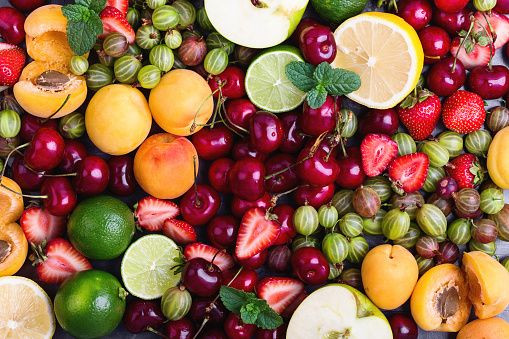2 Fruit Servings A Day Slash Type 2 Diabetes Risk By 36%: Study
KEY POINTS
- There's evidence that a healthy diet and exercise can help mitigate type 2 diabetes risks
- A study found that those who regularly ate two fruit servings significantly reduced the risks
- The benefit was only seen in those who ate whole fruits, not in those who drank fruit juice
Want to reduce your risk for type 2 diabetes? A new study found that having a healthy diet that includes two fruit servings can lower one's odds of developing it by 36%.
About 451 million people all over the world are living with type 2 diabetes, Edith Cowan University (ECU) noted in a news release. A further 374 million are at risk of developing it.
Family history, genetics, low activity levels, excess body weight around the waist and poor diet can increase people's chances of getting the disease.
According to the researchers of a new study, published in the Endocrine Society's Journal of Clinical Endocrinology & Metabolism, "overwhelming evidence" suggests that a healthy diet and regular physical exercise can mitigate the risks for it. The results of their study seem to support this.
For their study, the researchers looked at data from 7,675 Australians who were a part of the Baker Heart and Diabetes Institute's Australian Diabetes, Obesity and Lifestyle Study, which included information on their fruit and fruit juice intake based on a food frequency questionnaire.
The researchers found that those who ate at least two servings of fruits had a 36% reduced risk for developing type 2 diabetes in the next five years compared to those who only ate less than half a serving of fruits per day.
"We found an association between fruit intake and markers of insulin sensitivity, suggesting that people who consumed more fruit had to produce less insulin to lower their blood glucose levels," study lead, Dr. Nicola Bondonno of ECU, said. "This is important because high levels of circulating insulin (hyperinsulinemia) can damage blood vessels and are related not only to diabetes, but also to high blood pressure, obesity, and heart disease."
Interestingly, the benefits weren't the same for those who consumed fruits in the form of fruit juice. According to Dr. Bondonno, this could be because fruit juices can have more sugar and less fiber. Further, whole fruits are also high in phytochemicals that increase insulin sensitivity.
"(F)indings from this study support encouragement of the consumption of whole fruits, but not fruit juice, to preserve insulin sensitivity and mitigate T2DM (type 2 diabetes mellitus) risk," the researchers wrote. "Promoting a healthy diet and lifestyle which includes the consumption of popular fruits such as apples, bananas and oranges, with widespread geographical availability, may lower T2DM incidence."

© Copyright IBTimes 2024. All rights reserved.






















